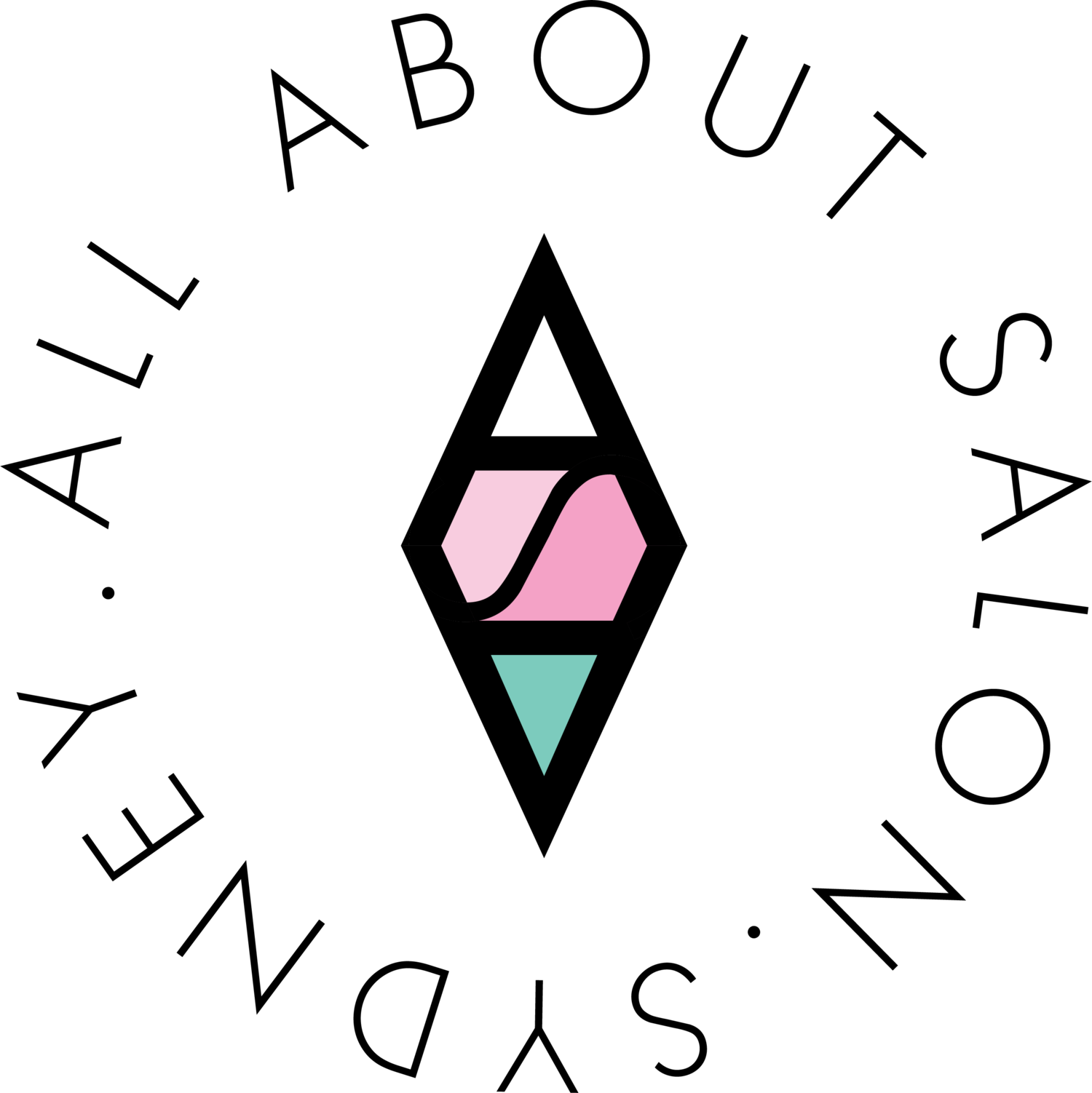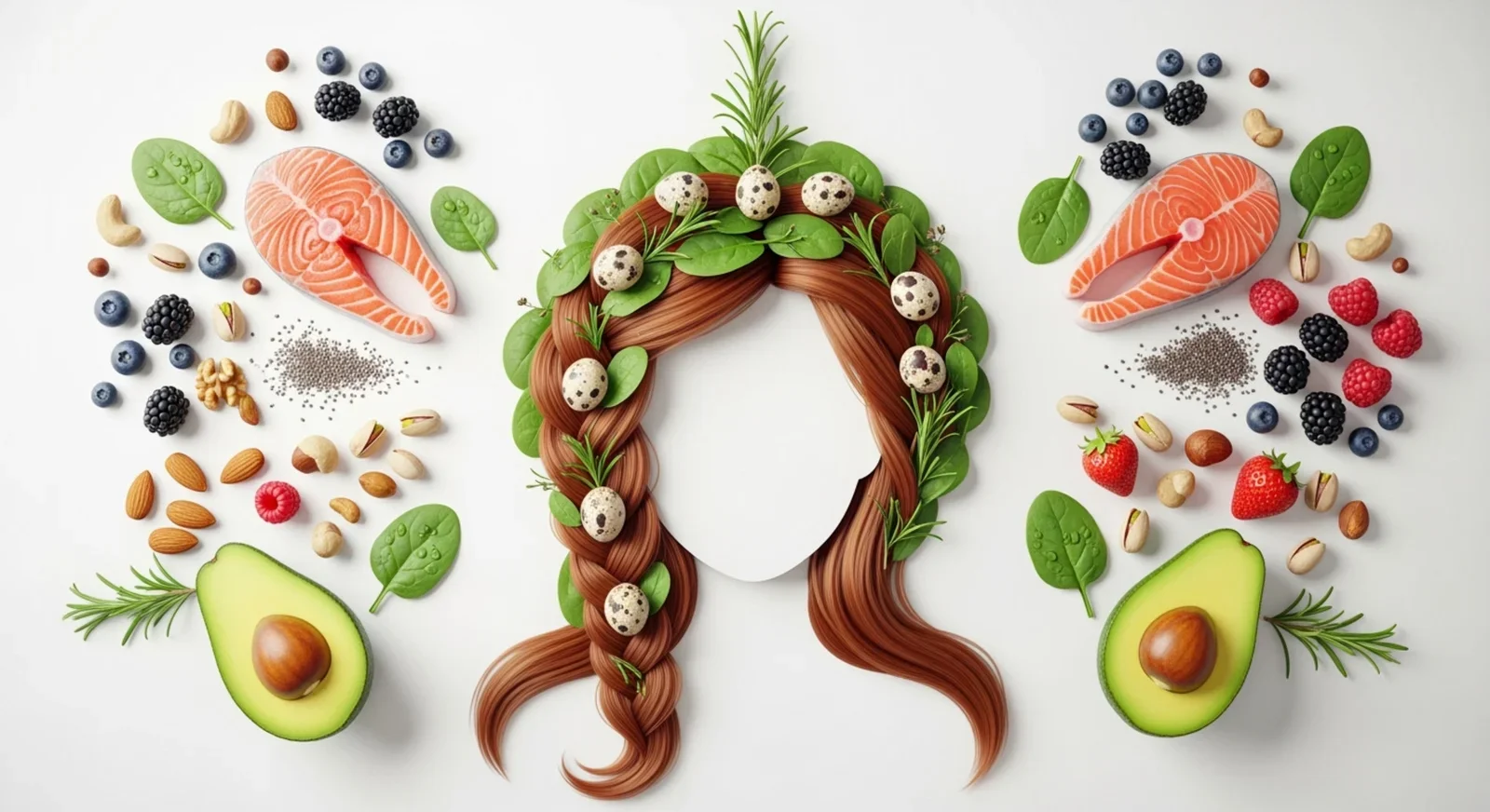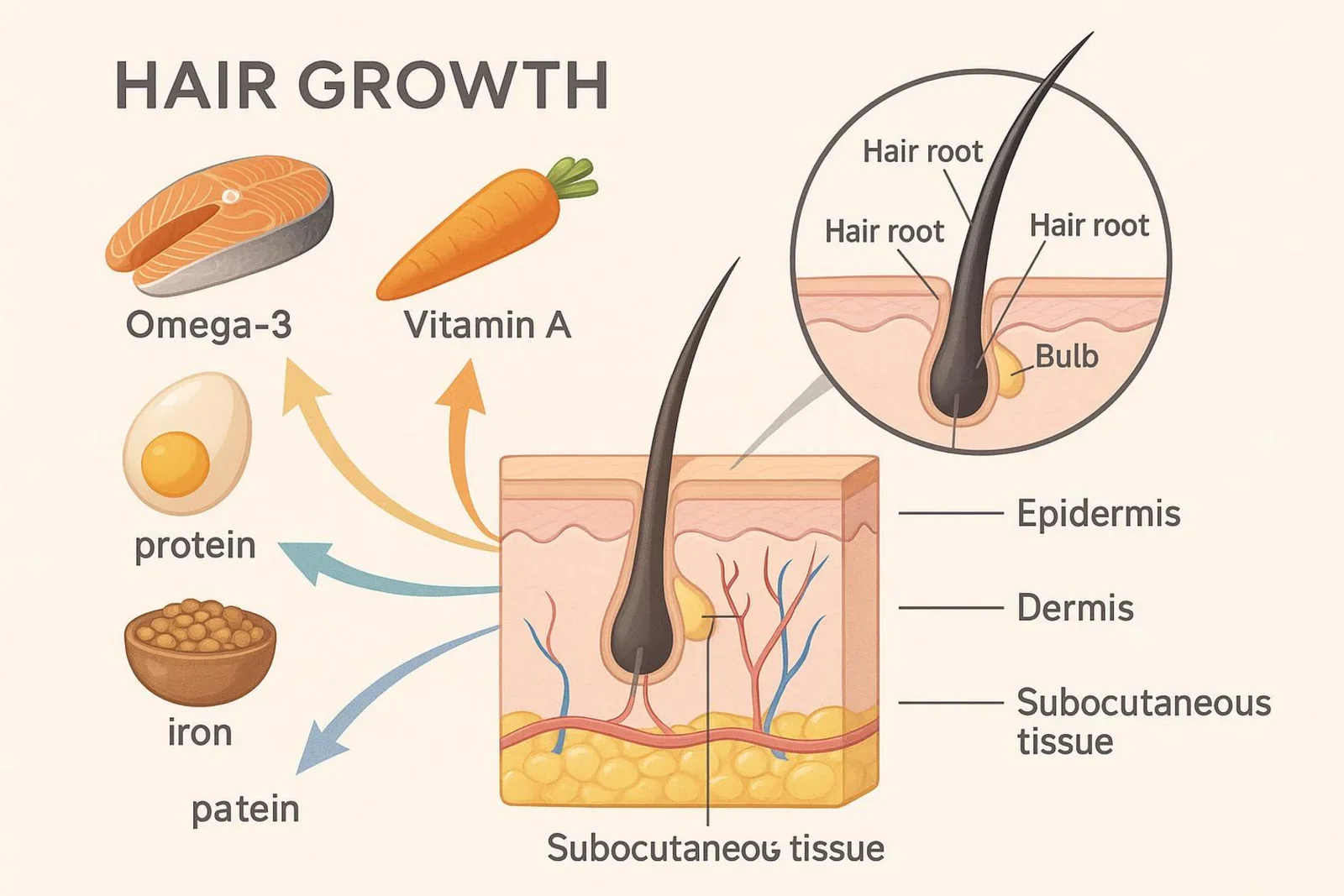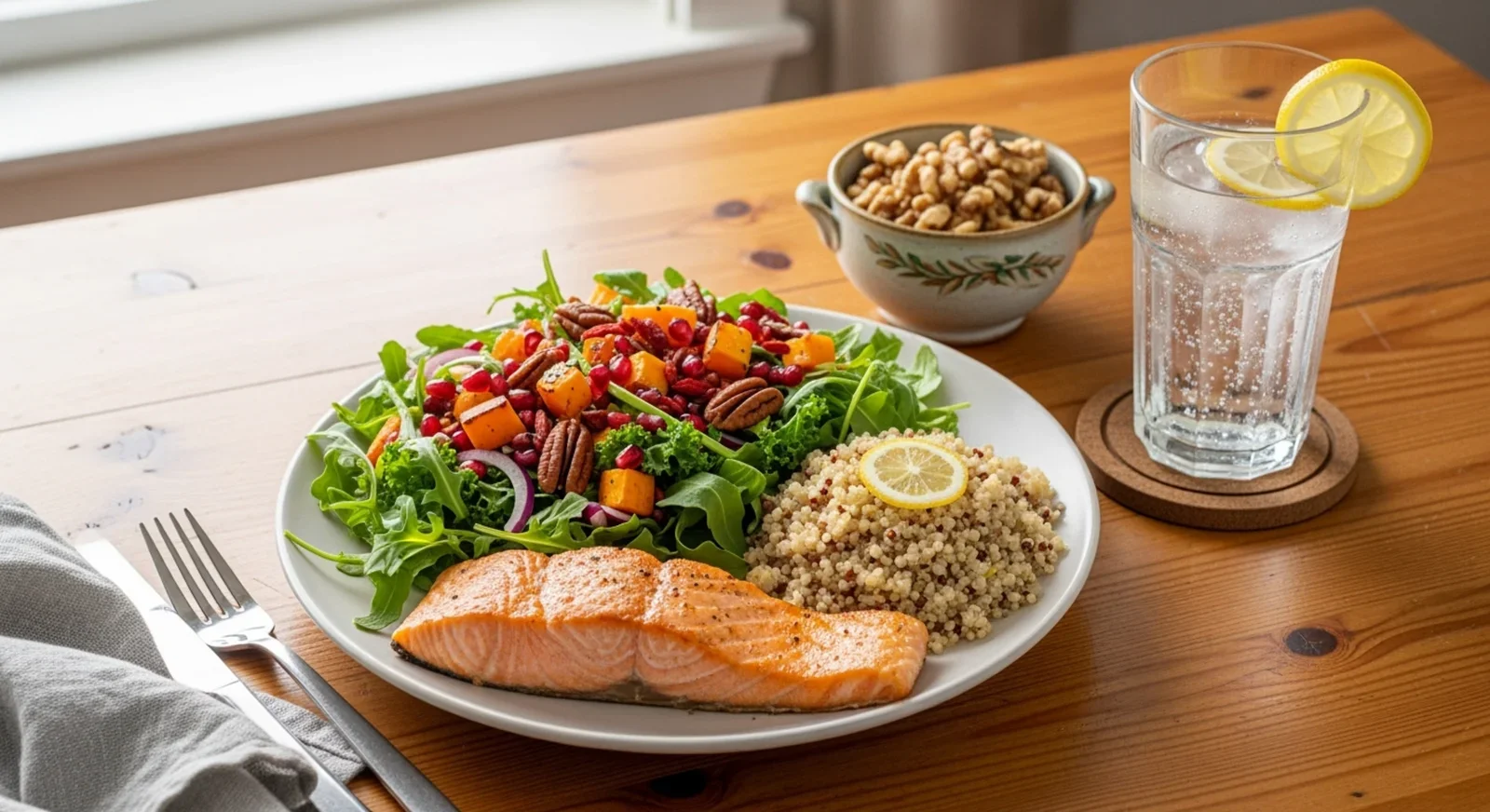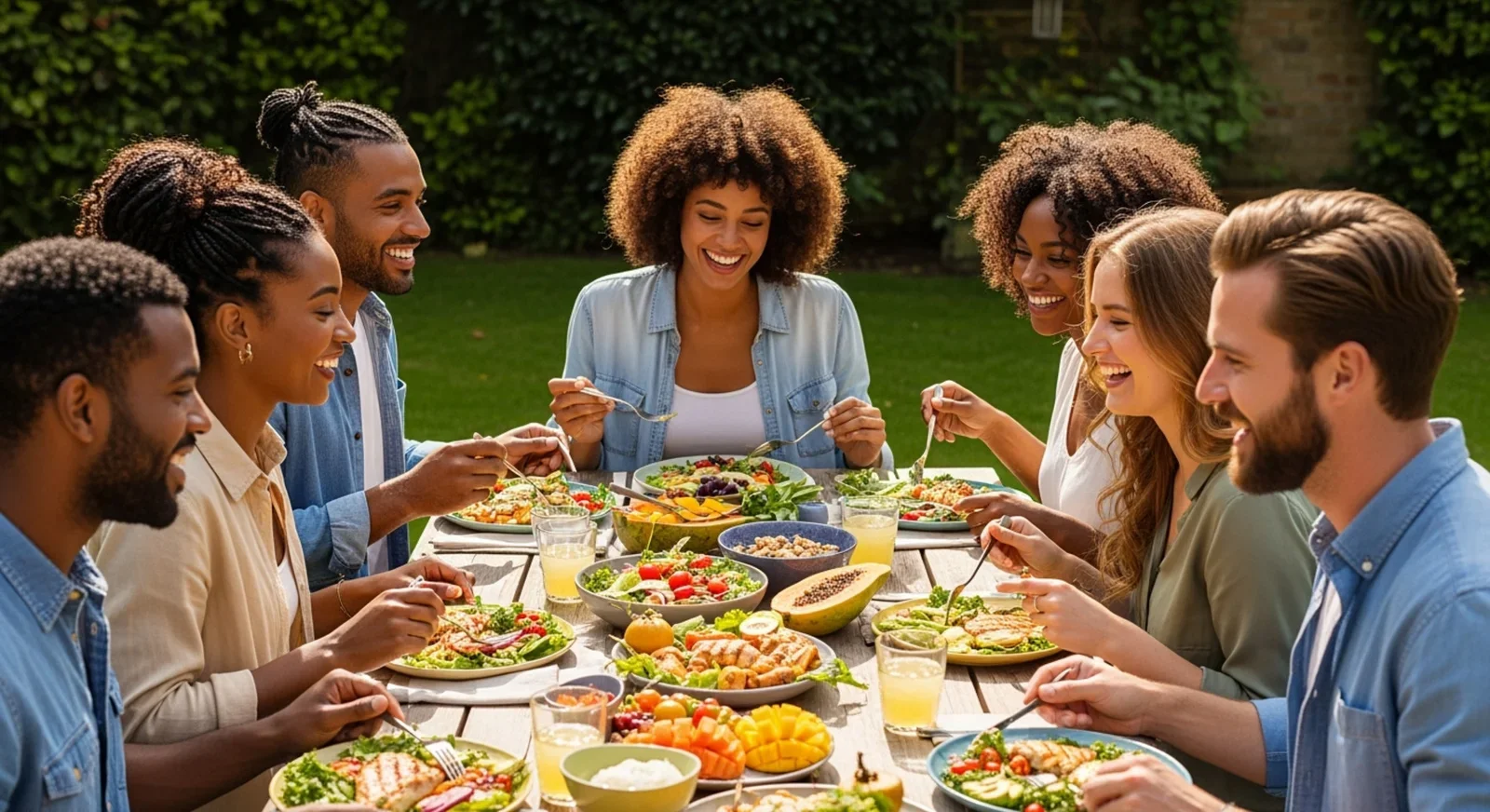The Connection Between Diet and Hair Health
Have you ever wondered if eating more spinach could really improve your hair? Or if having too many sweets and snacks makes your hair problems worse? It turns out that the food you eat has a much bigger impact on your hair than most people think. Hair care isn’t just about what you apply to your scalp-it’s also about the nutrients you put into your body. Your daily meals can really change how strong, shiny, and full your hair is. If you’ve noticed that your hair seems thinner, or you’re losing more than the typical 50 to 150 hairs every day, your eating habits might be part of the reason. In this article, we’ll look at how your diet can either help your hair or make it struggle.
How Are Diet and Hair Health Connected?
On average, people have about 100,000 hair strands, and each one isn’t just dead protein-it’s actually part of a living cycle. Hair grows and sheds in four main stages: Anagen (growth), Catagen (change), Telogen (rest), and Exogen (shedding). These stages need a steady supply of nutrients. Because hair follicles work hard and grow fast, they need plenty of energy and materials, so they quickly show signs if you’re not getting enough nutrition.
The main part of each strand is made from keratin, a type of protein also in your skin and nails that gives hair its strength. Hair also has water, fats, pigment (like melanin), iron, and zinc. This mix shows why a balanced diet-one with protein, healthy fats, carbs, vitamins, and minerals-is so important. If you don’t get enough of these, your hair can become weak, break easily, or even fall out.
How Do Nutrients Affect Hair?
Imagine your hair is a plant in a garden. Plants need good soil and the right nutrients to grow strong, and your hair is no different. It relies on constant supplies of key vitamins, minerals, fats, and protein. These nutrients help your hair cells multiply quickly and stay strong. For example, iron and zinc are needed for processes that help your hair grow. Low iron, for instance, can cause hair loss, while a shortage of zinc can harm hair follicles and scalp health.
Protein is the foundation, giving hair its structure. Healthy fats keep the scalp moist and the hair shiny and bendy. Vitamins and antioxidants shield hair from damage. When your food doesn’t supply enough of these things, your body focuses on more important organs and leaves your hair undernourished, which can cause extra shedding or slow growth.
Which Nutrients Are Most Important for Hair?
Some nutrients are especially important to help your hair stay healthy. Below you’ll find the ones that really matter and why your hair needs them.
| Nutrient | Main Role for Hair | Common Food Sources |
|---|---|---|
| Protein | Builds hair structure | Eggs, lean meats, fish, legumes |
| Iron | Delivers oxygen to hair follicles | Red meat, spinach, lentils |
| Zinc | Helps cell growth and repair | Seafood, nuts, seeds |
| Vitamin D | Supports new hair growth | Sunlight, fatty fish, fortified foods |
| Biotin & B vitamins | Helps with keratin and cell growth | Eggs, dairy, whole grains, leafy greens |
| Healthy Fats (Omega-3 & 6) | Moisturizes scalp, adds shine | Fatty fish, nuts, seeds, olive oil, avocado |
| Vitamin A, E, Antioxidants | Protects against hair damage | Carrots, nuts, sweet potatoes, berries |
| Selenium | Protects against damage | Brazil nuts, seafood, grains |
| Folic Acid | Helps cell growth | Leafy greens, legumes, fortified cereals |
Proteins and Amino Acids
Hair is made mostly of keratin, a type of protein, so you need to eat enough protein for healthy hair. Without enough, your body uses what little it has for more important roles, leaving hair weak or thin. Amino acids (the building blocks of protein) matter too. For instance, L-lysine might help your body absorb iron and zinc, both of which help hair growth. Some studies suggest that adding L-lysine can boost iron levels in women with hair loss.
Iron
Iron supplies oxygen to your hair roots, helping them grow. Not getting enough iron (which is common, especially in women who menstruate or people with special diets) can cause hair to fall out. Symptoms of low iron include tiredness, pale skin, and more obvious hair loss. Plant-based eaters need almost twice as much iron as those who eat meat, since plant iron is tougher to absorb. If you think iron is an issue, it’s smart to see a doctor and get your levels checked.
Zinc
Zinc is needed for many body processes, including making new cells and fixing damaged ones-both are needed for hair. Zinc also supports scalp health; not enough can cause a dry, flaky scalp or shedding. Vegans and vegetarians can be at risk because some plant foods make it harder to absorb zinc. Supplements can help with low zinc, but too much can cause problems, so always ask a health professional before starting new supplements.
Vitamin D
Vitamin D, also called the “sunshine vitamin,” helps kickstart new hair growth. Studies have found that people who lose hair often have low vitamin D. Not getting enough sun, having darker skin, or certain health problems can put you at risk for low vitamin D. If your levels are low and you’re losing hair, your doctor may suggest supplements.
Biotin and B Vitamins
Biotin (Vitamin B7) is known for helping hair grow. It works by helping your body make keratin. Actual biotin deficiency is rare, but if you have it, you might get rashes, hair loss, and brittle nails. Most people get enough biotin naturally, and taking more doesn’t help unless you’re actually low. Other B vitamins, like niacin, folate, B6, and B12, all help with scalp blood flow and cell growth. These are found in whole grains, meat, dairy, and green veggies.
Vitamins A, E, and Antioxidants
Vitamin A helps make sebum, the scalp’s natural oil, and can be found in orange veggies and leafy greens. Still, too much can cause hair loss, so don’t overdo supplements. Vitamin E protects your hair from damage and is found in nuts, seeds, and greens. Antioxidants in fruit and veggies fight off damage to hair cells, so eating a mix of colours helps your hair and scalp stay healthy.
Fats and Fatty Acids
Healthy fats, including omega-3 and omega-6, help hydrate your scalp and add shine to your hair. A lack of these can lead to dry hair and can even cause loss of hair on the scalp and eyebrows. Salmon, walnuts, flaxseeds, and olive oil are good choices. Healthy fats also help your body use vitamins A, D, E, and K.
Selenium and Folic Acid
Selenium helps protect your hair’s cells. While a lack of it is rare, getting too much (often from supplements) can actually cause hair to fall out. Folic acid, found in leafy greens, is more about preventing anemia but also helps cells grow, which can indirectly support hair health.
Water
Hair contains lots of water and needs it to stay stretchy and avoid breaking. A well-hydrated scalp is less likely to become dry, so drinking enough water (aim for about two litres a day) can help your hair stay healthy and shiny. Water also helps carry nutrients to your hair roots.
Which Diet Habits Can Harm Hair?
Just as good food choices help your hair, some eating habits can make things worse. Here are some common dietary reasons for hair problems:
Nutrient Deficiencies: Lacking iron, zinc, or biotin can cause hair loss, slow hair growth, or make hair thin and fragile.
Low-Fat Diets: Cutting out healthy fats can leave hair dry and trigger more breakage. Without enough fat, hair also misses out on fat-soluble vitamins.
Too Much Sugar: High sugar foods can mess with your hormones and cause inflammation. This can push hair out of the growth phase and lead to extra shedding and dullness.
Excessive Alcohol or Crash Dieting: These can make you dehydrated and sap your body of key nutrients, leading to brittle, thinning hair.
Strict or Fast Weight Loss Diets: Losing lots of weight quickly or following very restrictive diets can shift your body into "survival mode," slowing or stopping hair growth.
Vegan and Vegetarian Diets: While healthy when planned well, they put you at higher risk for missing out on certain vitamins and minerals your hair needs, such as iron, zinc, and B12.
What Foods Should You Eat for Healthy Hair?
The good news is that a balanced diet full of different whole foods supports strong hair growth. Here are some of the best choices for feeding your hair:
Protein-Rich Foods: Eggs, salmon, chicken, tofu, beans, and lentils are packed with the building blocks your hair needs.
Greens and Berries: Spinach and other dark leafy greens provide iron and vitamins. Berries are high in vitamin C and antioxidants which help build strong hair and protect against damage.
Nuts and Seeds: Almonds, walnuts, flax, and pumpkin seeds add healthy fats, vitamin E, and zinc to your meals.
Sweet Potatoes and Carrots: These orange veggies are full of beta-carotene, which your body turns into vitamin A.
Avocados and Olive Oil: Packed with good fats, these help keep your hair moisturized, shiny, and strong.
Dairy and Legumes: Greek yoghurt provides protein and B vitamins, while lentils and chickpeas give both protein and key minerals like zinc and iron.
Do Hair Supplements Really Work?
With so many supplements promising amazing hair results, it’s tempting to try them. But it's best to be cautious. Supplements are only helpful if you have a confirmed deficiency. Taking extra vitamins or minerals you don’t need can actually do more harm than good-causing hair loss, toxicity, or other health problems.
When Should You Use Supplements?
Supplements should only be considered if a doctor or nutritionist has checked and confirmed you are low in something, like iron or vitamin D. If you’re vegan or vegetarian and can’t get enough B12 or iron from food, a supplement might be needed, but talk to a health professional first to avoid imbalances.
What’s the Risk of Taking Too Many Supplements?
More isn’t always better. Too much vitamin A, E, or selenium can cause hair loss and other health problems. Many supplements have much higher doses than needed, so it’s best not to take them unless a doctor suggests them. Also, too much biotin can mess up certain blood tests, which could hide other health problems.
Why Get Blood Tests First?
Before you start taking any supplement for hair, check with a healthcare provider. Blood tests can find out if you actually need more of any vitamin or mineral. The right supplement at the right dose can help reverse hair loss if a real deficiency is found, but otherwise, a balanced diet is your best bet.
How to Build Habits for Strong Hair
Growing healthy, shiny hair isn’t about quick fixes or wild diets. It’s about steady, healthy habits you stick with over time. Here’s how to give your hair the best chance to look and feel its best:
Eat Balanced Meals: Make each meal a mix of protein, whole grains, colourful vegetables, fruits, healthy fats, nuts, and seeds. Try to eat different coloured fruits and veggies to get a variety of nutrients.
Keep Your Gut Healthy: A healthy gut helps you absorb vitamins and minerals better. Eat fibre-rich foods like fruits and vegetables, add in probiotic-rich options like yoghurt, and keep processed foods to a minimum.
Stay Hydrated: Drink about 2 litres of water a day so your hair (and the rest of your body) gets what it needs to stay strong and elastic.
Important Points About Diet and Hair Health
Your hair’s health is strongly linked to what you eat.
A balanced diet with enough protein, vitamins, minerals, and good fats helps hair grow and stay strong.
Poor eating habits or major restrictions can trigger hair loss, but eating better can often reverse the problem over weeks or months.
If hair loss is sudden or you’re worried, talk to your doctor to rule out medical causes or serious deficiencies.
A varied, whole-food-based diet-not supplements-is the foundation for great hair and general well-being.
By making healthy eating a regular part of your life, you’re not just improving your hair but helping your whole body feel its best.
Do you live in Sydney?
Get the perfect look at our salon – schedule your appointment now!
Our Services
Check Out Our Instagram
Check out our instagram
Check out our instagram and see our latest posts!
Check out our facebook
Check out our facebook and see our latest
posts!
